Sharpening a Skew Chisel
Learn how to sharpen this most important hand tool used in carving for undercutting or cleaning out corners.
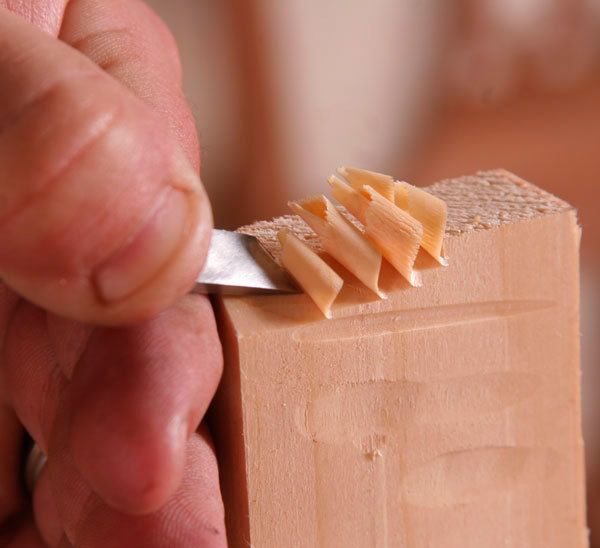
One of the carver’s most important tools is the skew chisel, used often for undercutting or cleaning out corners.
One of the fastest ways to get a sharp edge on a skew chisel begins with the belt sander, which can remove a lot of material quickly. Secure the sander with the platen facing up and oriented so the belt will move away from you as you work. A sanding stand is great for this, but not strictly necessary. You can also hold the sander in a vise or fasten it to the benchtop with handscrews.
Joint the skew’s edge by standing the tool on the moving sanding belt with a firm two-handed grip. You want to create a flattened edge at roughly a 30-degree angle to the tool’s sides. Check your progress by eye or, for greater accuracy, gauge the angle you’ve created with a 30-60-90 drafting triangle.
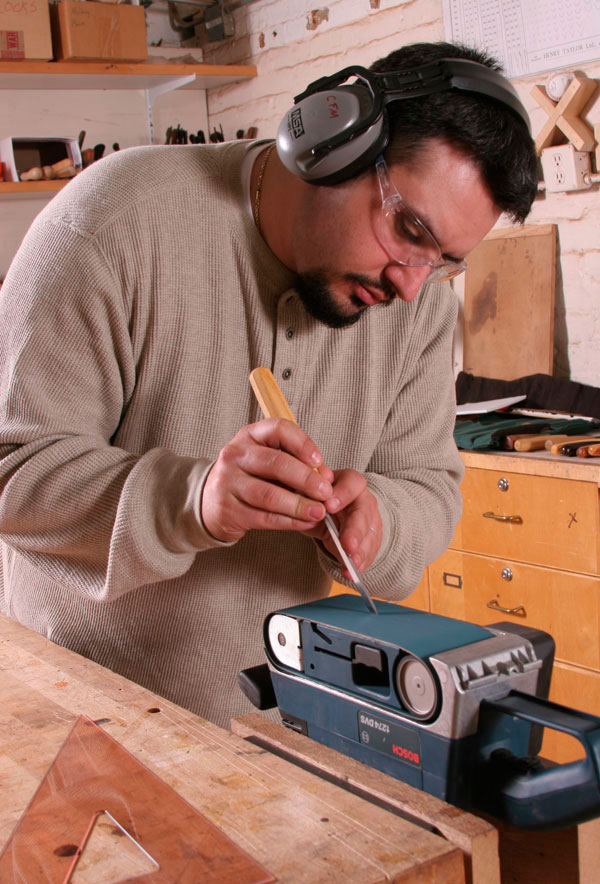 |
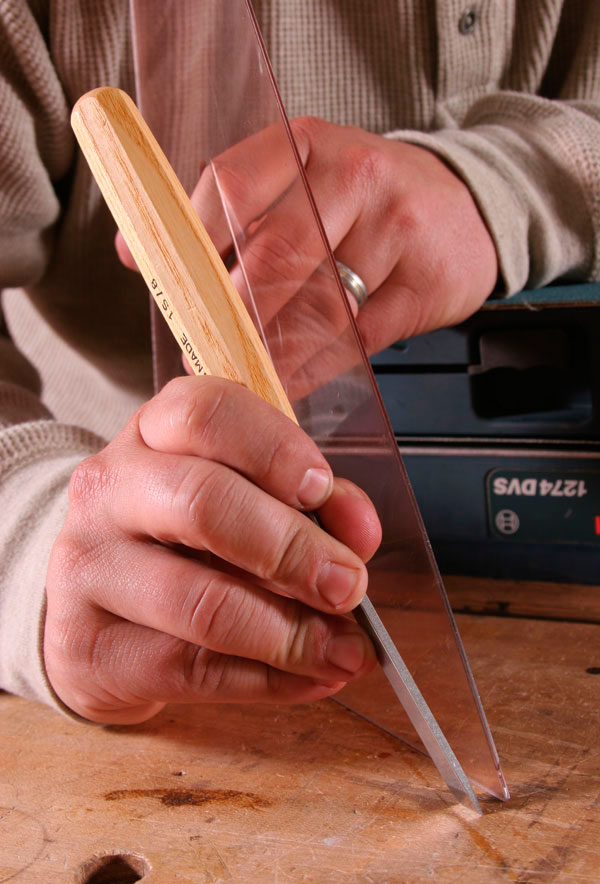 |
I also use the belt sander to simultaneously grind and round the 15-degree bevel on each side of the skew chisel. I like to round the bevels because a hard-cornered heel makes it more difficult to maneuver the tool when cutting curves and other shapes.
When working the bevels, make sure the jointed edge of your tool is square to the edges of the sanding belt. Begin grinding directly on the heel, to get the extra metal at the corner out of the way. Next, take a series of passes that begin with the tool flat on the belt. Gradually lift the handle to the desired 15 degrees as you move the tool forward and backward. This blends the rounded shape.
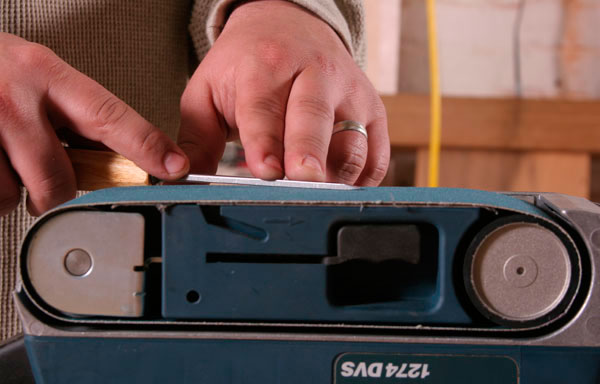 |
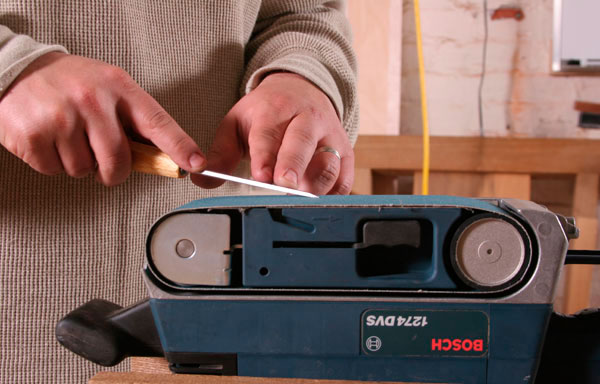 |
Check your progress by eye frequently. When you’re done, the rounded bevel on each side should be a smooth, continuous transition from the flat of the tool’s shank to the cutting edge. The edge itself should be straight and centered on the tool’s thickness. This ensures that the chisel will perform the same regardless of which bevel is used.
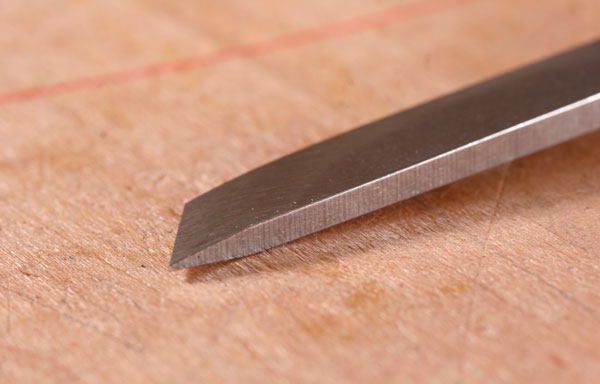 |
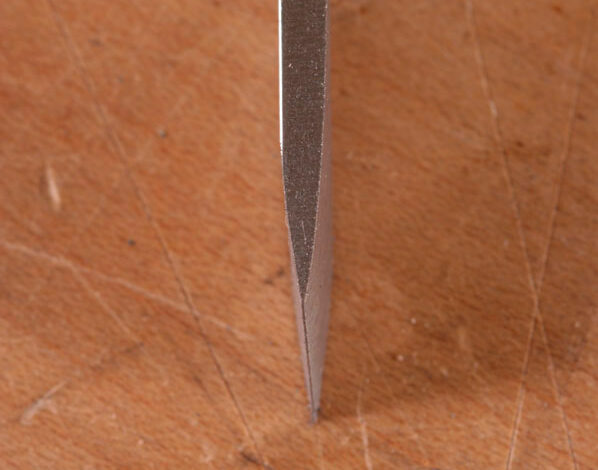 |
Honing essentially repeats this movement on the stones. Start with the tool flat on the stone, lifting it to the 15-degree angle as you draw the tool toward you. Use the India stone to refine and hone the skew to a sharp edge. Move to the Arkansas stone and strop to finish the polishing out.
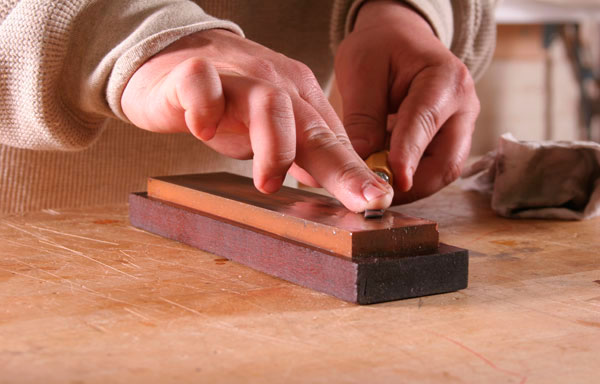 |
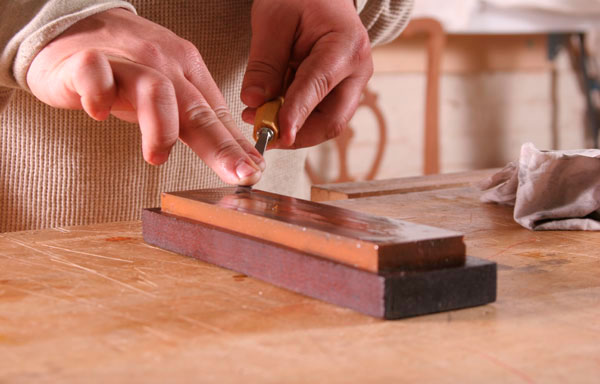 |
Here’s a look at the sort of shavings that a sharp skew can produce. Have fun!
Fine Woodworking Recommended Products
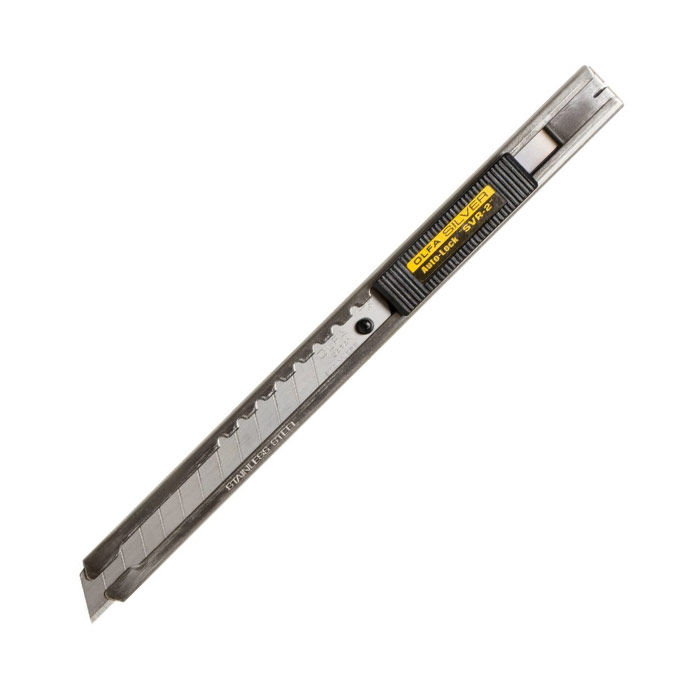
Olfa Knife
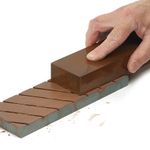
Norton Water Stones
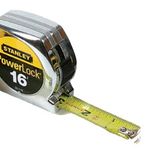
Stanley Powerlock 16-ft. tape measure
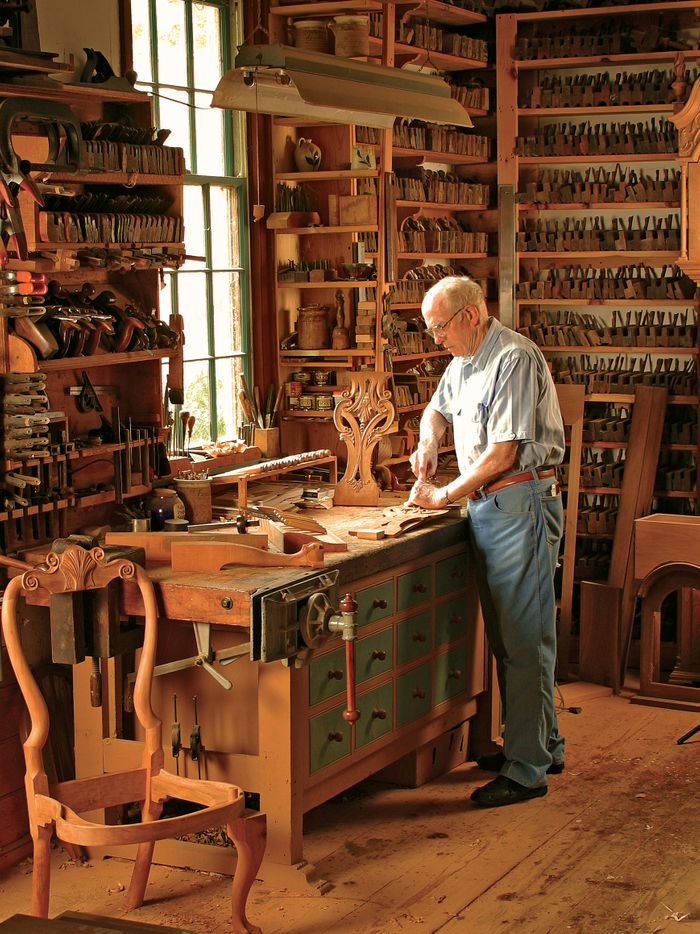
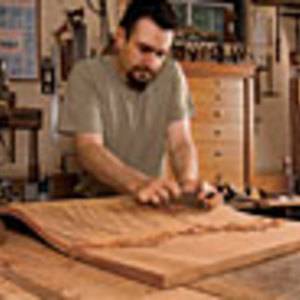
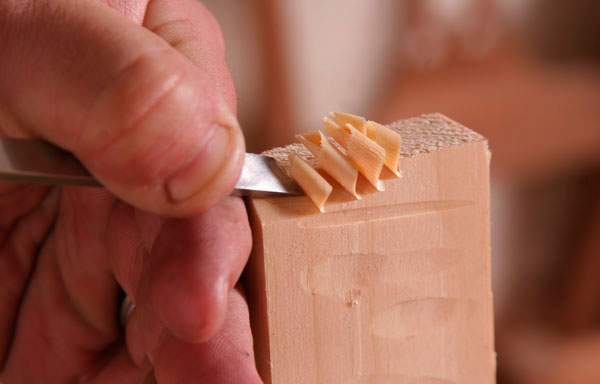






Log in or create an account to post a comment.
Sign up Log in